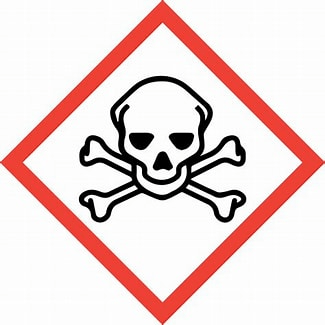What is a LIQUID?
Make sure these are on your head whenever you enter an active laboratory
What are SAFETY GOGGLES?
The smallest stable form of matter
What is the ATOM?
Electrons located on the outermost shell of an electron cloud are called these
What are VALENCE ELECTRONS?
Dr. Mendeleev created the first Periodic Table based on this
What is ATOMIC MASS?
periodic trend refers to the energy required to remove an electron from an atom
This is a change that allows a substance to go from one phase to another phase and back to its original phase.
What is a PHYSICAL CHANGE?
These items are forbidden in a lab no matter how hungry or thirst you may get.
What are FOOD AND DRINKS?
This subatomic particle is located in the nucleus and does not have a charge
What is a NEUTRON?
The element this electron configuration represents:
1s² 2s² 2p⁶ 3s² 3p⁶ 4s² 3d¹⁰ 4p3
What is ARSENIC?
The current form of the periodic table was first developed in 1913 by Dr. Moseley and is based on this
What is ATOMIC NUMBER?
the trend in the electronegativity of the elements as you move from top to bottom within a group in the periodic table
It is the measure of the average kinetic energy of the particles of a substance
What is the TEMPERATURE?
This is done so you actually have the same hair when you enter the lab as when you leave the lab.
What is TIE YOUR HAIR BACK?
This subatomic particle virtually has no mass and is located outside of the nucleus
What is an ELECTRON?
What is an ION?
What are METALLOIDS?
the distance from nucleus of an atom to the edge of its electron cloud
What is ATOMIC RADIUS?
You are said to have good this when you are able to repeat a measurement repeatedly
What is PRECISION?
 This symbol represents chemicals that can cause a lot of damage even in low and very low quantities.
This symbol represents chemicals that can cause a lot of damage even in low and very low quantities.
What is the PROTON?
This group of elements are know for having a full, outer electron shell
What are the NOBLE GASES?
What are HALOGENS?
the tendency of an atom to lose electrons and participate in chemical reactions or form bonds
What is METAL ACTIVITY?
Two objects are in this state when two objects of different temperature, in contact, eventually reach the same temperature
What is THERMAL EQUILIBRIUM?
Placing glass with an extreme temperature in contact with other substance of opposite temperature will cause this to happen.
What is CRACK or SHATTER?
What are PROTONS and NEUTRONS?
What is [Ar]4s23d7?
These two elements are the only elements on the periodic table that are liquids at room temperature.
What are BROMINE and MERCURY?
the largest atomic radius among Argon, Barium, Lithium, Beryllium or Cesium
What is CESIUM?